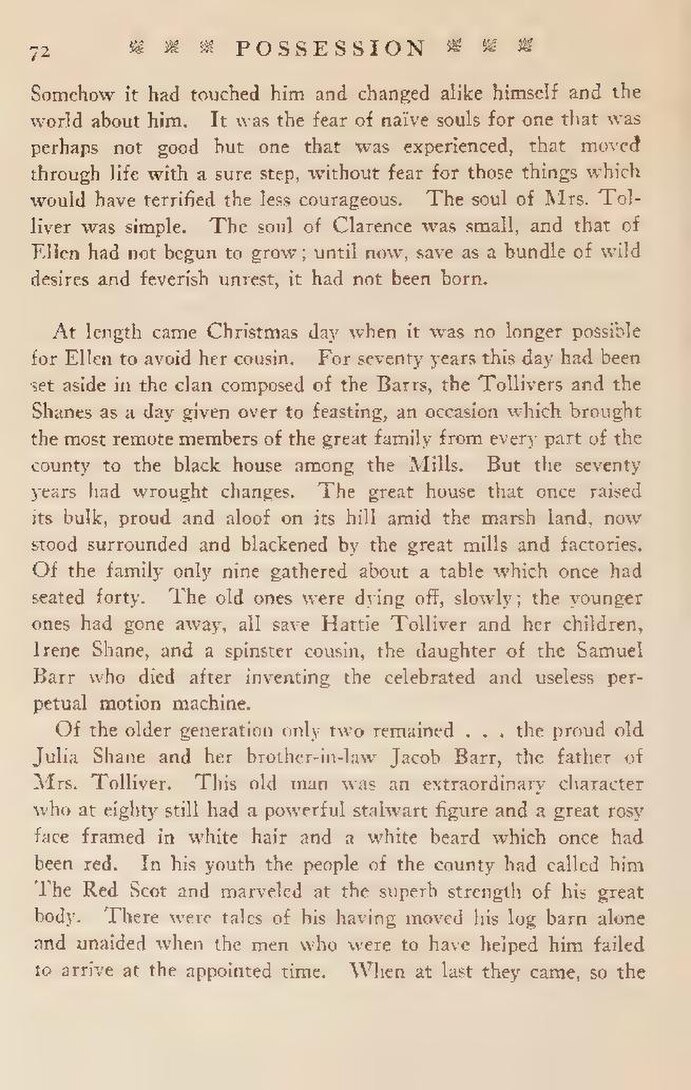Somehow it had touched him and changed alike himself and the world about him. It was the fear of naïve souls for one that was perhaps not good but one that was experienced, that moved through life with a sure step, without fear for those things which would have terrified the less courageous. The soul of Mrs. Tolliver was simple. The soul of Clarence was small, and that of Ellen had not begun to grow; until now, save as a bundle of wild desires and feverish unrest, it had not been born.
At length came Christmas day when it was no longer possible for Ellen to avoid her cousin. For seventy years this day had been set aside in the clan composed of the Barrs, the Tollivers and the Shanes as a day given over to feasting, an occasion which brought the most remote members of the great family from every part of the county to the black house among the Mills. But the seventy years had wrought changes. The great house that once raised its bulk, proud and aloof on its hill amid the marsh land, now stood surrounded and blackened by the great mills and factories. Of the family only nine gathered about a table which once had seated forty. The old ones were dying off, slowly; the younger ones had gone away, all save Hattie Tolliver and her children, Irene Shane, and a spinster cousin, the daughter of the Samuel Barr who died after inventing the celebrated and useless perpetual motion machine.
Of the older generation only two remained . . . the proud old Julia Shane and her brother-in-law Jacob Barr, the father of Mrs. Tolliver. This old man was an extraordinary character who at eighty still had a powerful stalwart figure and a great rosy face framed in white hair and a white beard which once had been red. In his youth the people of the county had called him The Red Scot and marveled at the superb strength of his great body. There were tales of his having moved his log barn alone and unaided when the men who were to have helped him failed to arrive at the appointed time. When at last they came, so the
